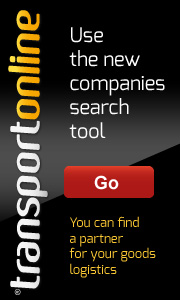Search Company:

Whether Improved Document Systems or Train Maintenance - IT Technology is the Key.
UK – WORLDWIDE – As the year draws to a close possibly the thing which has most affected the road and rail haulage and freight forwarding sectors during 2015 has been the steady progress of IT technology and how it affects the logistics industry as a whole. The growth of e commerce in all its forms is in part through natural progression to streamline processes, whilst many changes have been driven by alterations in consumer habits, principally the use of online purchases and the demands for faster service.
Now that we see the spread in standardisation of global shipping and customs processes, data flows freely between states and internationally agreed codes are used for carriers, modes, statuses and transactions, allowing fast and accurate exchange of information, even where languages differ. The air cargo industry has led the charge with short form codes for both airlines and airports instantly identifiable and the continuing spread of electronic Air Waybills.
In freight warehouses and ports across the world RFID devices are now commonplace and any householder will now be used to signing the delivery man’s electronic keypad. Some of the oldest established names in shipping and general transport have been leaders in the field. John Good Shipping, established back when dinosaurs ruled the earth (1833 actually Ed.) has embarked on an extensive programme to implement EDI (electronic data interchange) with its customers, partners and service providers to maintain a prime position as one of the UK’s leading shipping agents and freight forwarders.
Having adopted all the existing industry-standard procedures and codes the company says it was a logical development to improve data sharing processes by prioritising data conversion where the volume or complexity suggested efficiencies, or when the speed of information exchange is paramount.
With suitable input from the major shipping lines updating container positions etc., usually within an hour of a change of status, John Good can instantly and automatically trigger confirmation messages and transfer documents to customers and partners, or indeed is able to react to any problems before they become more serious.
The complexities of what these systems can do however stretches much further, with input from HMRC allowing auto-generation of customs clearance status and documents to customers if required, whilst road hauliers are issued transport instructions, and pre-advices sent to the relevant receiving warehouse personnel.
As a principal ships agency John Good also sees the situation from a different perspective, issuing information gleaned from consignors regarding cargo, shipment and billing requirements, to their shipping line customers. Internal monitoring systems ensure that milestones are noted and warning alerts issued whilst, having developed the company’s own systems, John Good’s EDI team are actively helping customers (and potential customers) so they can utilise the forwarder’s technology to their own advantage. The company welcomes such enquiries.
By loading spreadsheets of orders into the system customers may track shipments by their or their clients’ references such as Order Numbers, Product Codes, SKU, ASN etc. allowing full control over matters and, when for example stock is delayed, the customer can take remedial action before a major problem arises, whilst John Good can automatically update the clients system or advise of status via a daily Excel report.
The advance of these IT processes, and the changing demands of customers for faster delivery systems has had an obvious effect on the road haulage industry, still blighted by a chronic shortage of drivers. In this climate however a beneficiary is the rail freight sector and behind many of the huge number of packages and products that reach retailers’ shelves is rail, an industry which has had to change as quickly, as electronic commerce and customers’ expectations have grown.
On time transit has always been crucial to rail freight operations but higher customer demands have increased this expectation further. Despite the fast moving changes in these markets and in customer requirements, DB Schenker Rail UK has recently announced record improvements in Moving Annual Average scores (MAA) and high percentages for Train Service Arrival Punctuality in 2015, that is arrivals within 15 minutes as scheduled. Royal Mail is a DB Schenker customer and David Hawkins, Head of Contract Operations at Royal Mail, said:
“Two months ago we saw a record arrival on the East Coast Mainline of 100% to time and that’s evolved through our partnership because of the way we work together and a journey over the past seven years based on honesty. Every year, the service has improved. At this moment in time, we’re holding a record 96.3% arrival to time within 10 minutes, which is excellent.” Read more
Source: HANDY SHIPPING GUIDE




